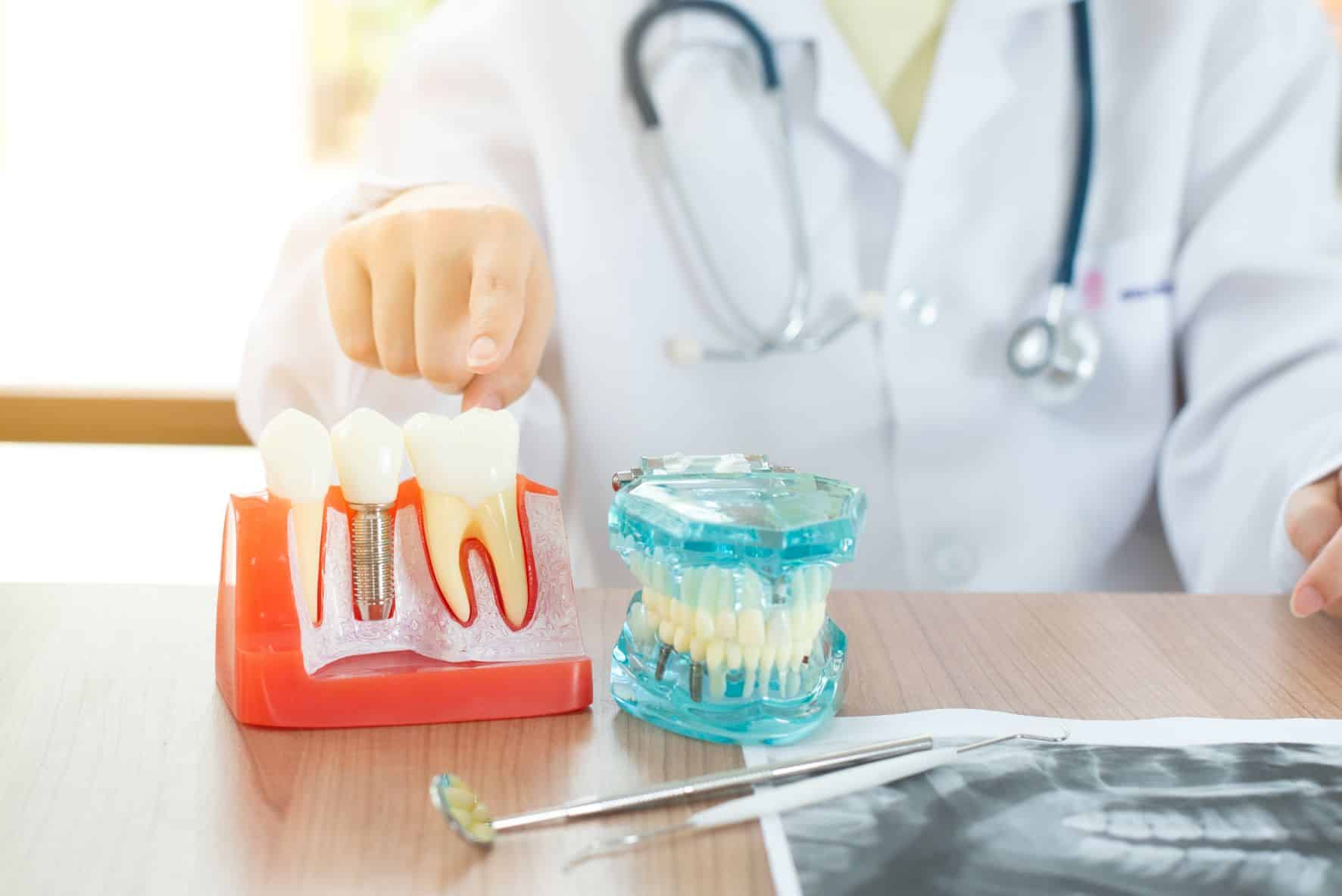
Common Dental Implants Problems (And How To Avoid Them)
Losing a tooth has been a problem for humanity for ages. Fortunately, new dental techniques and more advanced dental technology have been developed over time. Dental implants are now the go-to solution for tooth loss in many cases, as they look natural and have a staggeringly high success rate. This is not to say that there cannot be complications, however.
As with any other medical procedure, there is always a risk of complications. Today, we will go over some of the complications that can happen with dental implants, address the myths surrounding them, and some ways you can take care of your implants and your oral health as a whole to protect your investment in your smile. Please keep in mind that while these are the most common complications after receiving dental implants, they are all largely preventable with proper aftercare and oral hygiene.
What Are The Most Common Dental Implant Problems?
#1. Infections
There is a risk of infection when you undergo dental implant treatment. Infections can be quite painful and may even be a risk to one’s overall health, if not taken care of in a timely manner. Closely following all of your dentist’s aftercare instructions is crucial to greatly reducing the chances of developing an infection. Post-implant infection is largely preventable with proper care and attention to your mouth and gums in the weeks following treatment.
#2. Peri-implantitis
Gum issues may occur right after getting dental implants, and they can be painful or subtle. There is the potential of developing a gum disease such as peri-implantitis. Peri-implantitis is a gum infection that occurs near the implant area due to bacteria forming in the gums around the implant. Symptoms may include:
- Bad Breath
- Loosening of the implant
- Bleeding
- Swelling
Getting dental implants does not mean that you will or are even likely to get peri-implantitis. The condition is entirely preventable and easily treatable if caught early on. Early stages are relatively mild, so pay close attention to your teeth and gums in the weeks following treatment, and ensure that you attend all recommended followup appointments with your dentist. These appointments are designed to scan for any complications that can arise and ensure that your recovery is progressing as expected.
#3. Nerve Damage
Everyone’s nerve pathways are slightly different, meaning that there is the possibility that an implant can be placed too close to a nerve. This can result in sensations of tingling, occasional temporary numbness in the area, and nerve pain.
This condition is extremely rare (about 1% of all cases), but it is possible, and any symptoms along these lines should be communicated to your dentist or oral surgeon as soon as possible. When addressed early, the condition can be reversed through one or a few different means, all of which require adjustment or removal of the implant by your oral surgeon. If you have concerns about the placement of your implant, talk to your surgeon before consenting to implant surgery.
#4. Complications Due To Smoking
It goes without saying at this point that smoking is bad for your health. Worse yet, it is terrible for your oral health. Smoking can cause several complications to healing after oral surgery, including drying out the gums, introducing nicotine, tar, and other harmful substances to surrounding tissues, restricting blood flow to the gums, and prolonging healing time. If at all possible, stop smoking during your recovery to ensure you greatly reduce the risk of complications.
How Can I Prevent Dental Implant Complications?
If you’re considering dental implants, you should always take good care of your health and quit smoking if at all possible.. You can also avoid the most common dental implant problems by following these tips:
#1. Regular Dental Check-ups
Caring for your oral health is essential. The most direct and important way to do this is by scheduling and keeping your dental check ups. Implant surgery is an involved procedure that requires several followup appointments to chart your progress and scan for complications. Ensuring you make your appointments and follow your oral health professional’s advice will drastically reduce the chance of complications as a result of your implants.
#2. Take Care Of Your Teeth
Regularly brushing, flossing, and rinsing your teeth will help you avoid the most common dental implant problems. Brushing is essential as it can eliminate plaque and food residue from your teeth, and flossing is essential to removing food particles that can harbor harmful bacteria and increase the chance of infection.
Rinsing with an approved antibacterial mouthwash helps disinfect your mouth and clean hard to reach areas around the gumline.
#3. Avoid Smoking And Alcohol
While recovering from oral surgery, avoiding smoking and alcohol is crucial to decreasing your healing time and preventing oral infections.. Smoking can irritate your soft tissues and gums. It can cause inflammation of the gum tissues, one of the most common dental implant problems, and it restricts blood flow to your gums, depriving your gums of fresh blood and prolonging healing time. Alcohol intake can also lead to gum issues like thinning, bleeding, or inflammation, as well as the development of periodontal diseases like swollen gums, receding gums, or loosening your dental implants.
Get The Smile You’ve Always Wanted
Carrie Muzny D.D.S. offers the highest-quality dental services for our patients in The Woodlands and surrounding areas. Our highly acclaimed dentists are not only exceptionally trained in modern preventative techniques, but also have attained academic honors and continue to refine their craft year after year in preventative dentistry, restorative dentistry, surgical procedures, and cosmetic dentistry.
With our state-of-the-art technology and vast range of smile-perfecting procedures, we stay atop the field and deliver smiles as sunny as the state of Texas!
To let us help you get that perfect smile, contact us today. You can even request a virtual consultation!

